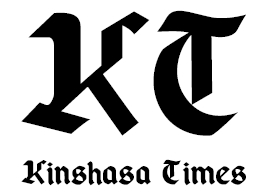Global Witness, a British non-profit organisation promoting transparency and accountability, published on 21 July 2017 a report on 750 million USD dollars mining receipts that disappeared from DRC public treasury from 2013 to 2015. In order to better inform the Congolese public opinion, KINSHASATIMES.CD talked to PETER JONES, Global Witness Campaigner on DRC. Full interview is below.
KINSHASATIMES.CD: The report published by Global Witness on 21 July 2017 entitled « Regime Cash Machine » stated that 750 million dollars evaded the DRC public treasury. How did you arrive at this figure?
PETER JONES: We analysed payment data published by the Extractive Industries Transparency Initiative (EITI) and other sources to understand whether mining payments (taxes, royalties etc.) in Congo end up in the national treasury. We found that between 2013 and 2015, $750 million paid into national tax agencies (DGI, DGDA and DGRAD) and Gécamines did not reach the national treasury. It is unclear what has happened to this money.
KINSHASATIMES.CD: How did this money disappear?
PETER JONES: The EITI reports explain quite clearly that the tax agencies retain a percentage of fines “pour leur proper compte”. The evidence we gathered in interviews with businessmen, tax agents, politicians, diplomats and civil society indicated that the money kept back by the tax agencies is the ‘chasse gardée’ of the heads of the agencies, who are linked to Presidency or the Primature.
KINSHASATIMES.CD: You blame this tax evasion on a malfunctioning Congolese tax system. What do you find wrong with this tax system?
PETER JONES: One of the problems we have found with the tax system is that it is too fragmented and complicated. The tax system needs to be simplified and should be more transparent. Also, the system that allows agencies to withhold a percentage of the fines they impose has encouraged predatory behaviour by tax agents. This needs to be stopped.
KINSHASATIMES.CD: The report doesn’t seem kind either towards GECAMINES which it describes as a “real black hole in the Congolese economy”.
PETER JONES: As well as the EITI reports, we analysed leaked documentation and gathered testimony that indicates that money is extracted from Gécamines through suspicious transactions. We look in particular at a series of ‘avances sur fiscalié’ by Gécamines, where it appears to pay over $95 million in advance taxes in the space of just seven months. What is especially strange is that Gécamines instructs BGFI Bank to leave $8 million in cash au guichet. This is very unusual and our sources say this is an “embezzlement operation.” Remember that BGFI is run by Joseph Kabila’s adopted brother, Francis Selemani Mtwale.
KINSHASATIMES.CD: The bulk of the report seems to draw its facts from figures provided by EITI. Yet these figures show that DRC’s efforts to improve transparency in the mining sector are beginning to yield dividends, including 2 billion dollars in mining revenues to the government in 2014. Isn’t that a contradiction?
PETER JONES: EITI has improved transparency in Congo’s mining sector and revenues to the budget did increase each year from 2013 to 2015. We acknowledge this in our report and it is of course a positive step. However the revenues could have increased by much more if one fifth of mining receipts was not being withheld by these opaque agencies: that is what our report is trying to highlight.
KINSHASATIMES.CD: Mining companies operating in the DRC include a lot of offshore shell companies. This does not help with transparency. What are your views about this?
PETER JONES: Global Witness has run a long campaign about offshore secrecy and tax havens. We believe that offshore shell companies are often used as ‘getaway vehicles’ for criminal deals, and the opacity they bring is damaging to an economy. We have campaigned for full beneficial ownership transparency for all companies operating in Congo’s mining sector.
KINSHASATIMES.CD: What recommendations do you make for better contribution of DRC’s mining resources to country’s development?
PETER JONES: As prices increase and huge mining deals are signed, it is more important than ever that the agencies and companies charged with gathering and transferring revenues from Congo’s mining sector operate transparently and in the interests of the Congolese people. If they do not, then Congo’s state auditors, donor governments, international mining companies and civil society must encourage and pressure them to do so. Please read pages 32 and 33 of our report for full details on our recommendations.


![Global Witness Sheds Light On Tax Evasion In DRC [Exclusive Interview]](https://kt.cd/app/uploads/2017/07/AGW-ITW.jpg)